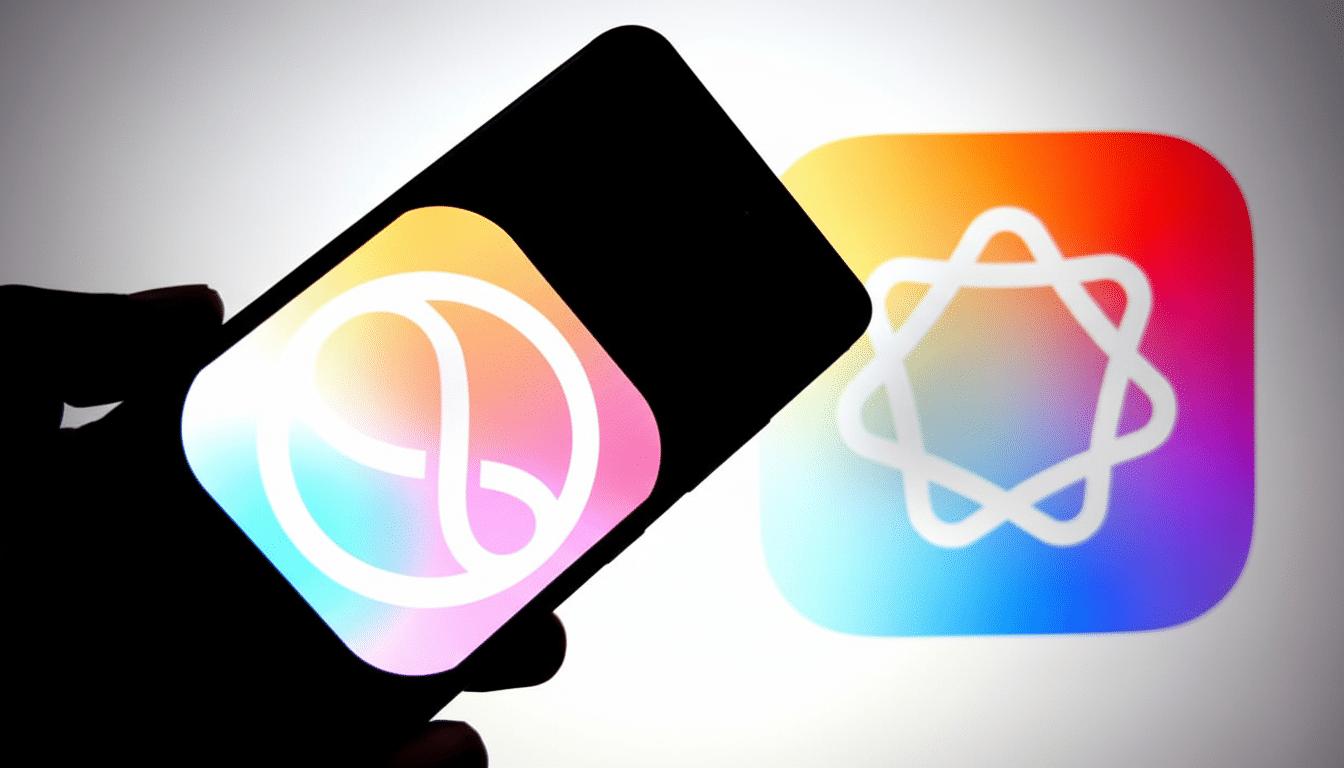Apple is preparing its biggest Siri upgrade in years thanks to Google’s Gemini to power the assistant’s brain, according to a report from Bloomberg’s Mark Gurman. The idea is that a custom Gemini model will live in Apple’s Private Cloud Compute, so Siri can answer with more detail and context without any dilution of Apple’s privacy standards.
What Gemini Might Unlock for Siri’s Next Evolution
Gemini is built for multimodal reasoning and long-context planning, two skills that Siri has never truly had. Under the described model, Siri’s new stack consists of a query planner to decompose requests into steps, a knowledge search layer to return pertinent facts across services and aggregation sources, and a summarizer module for generating consolidated natural language responses.
- What Gemini Might Unlock for Siri’s Next Evolution
- How Apple Could Keep It Private and Fast with Gemini
- Why Google’s Gemini and Why Now for Apple’s Siri
- Launch Window and Expected Features for Siri’s Upgrade
- Competitive Stakes in the Rapidly Evolving A.I. Assistant Race
- Risks and Open Questions Around Siri’s Gemini Integration

In practice, that might mean Siri could accomplish compound tasks such as “Find a quiet Italian place near the office, book it for 7 o’clock, add it to my calendar and text the invite to Ana.” The planner would chain together location lookup, preference filtering, reservation scheduling and messaging — then update if you change your mind in the middle of it.
You can expect better understanding of follow-up questions, more accurate summaries of long emails and group threads, and context that remains consistent across apps. Gemini’s expertise in summarization and retrieval ideally will cut the number of non-answers or generic web snippets that have irked longtime Siri users.
How Apple Could Keep It Private and Fast with Gemini
Apple has already described Private Cloud Compute for Apple Intelligence: server-based models running on Apple silicon in data centers with end-to-end encryption, code auditability and minimal logging. By routing Gemini through that structure, Siri would be able to refer to context on the device — say, your calendar or reminders — without sending raw data outside of an Apple device.
The likely setup is hybrid. Lightweight tasks and sensitive work are conducted on-device; heavy lifting — complex planning, deep-context reasoning, and wide knowledge requests — escalates to the private cloud. That balances latency, cost and privacy, and it’s actually how the top assistants today are developing across the industry.
Why Google’s Gemini and Why Now for Apple’s Siri
Apple and Google already have what is arguably one of tech’s most important relationships: Google Search as the default on Safari, a relationship that U.S. antitrust filings indicated brought Apple comfortably into the tens of billions of dollars every year.
Deeper integration with large language models provides Apple a shortcut to web-scale knowledge and mature tooling (like commonsense reasoning, for example) while the company builds its own models.

Training and deploying state-of-the-art models at Apple’s scale is a multiyear, capital-intensive endeavor. By building on Gemini, and baking in that juicy Apple privacy goodness (as well as Apple UX), Apple gets to close the feature gap with its smartened rivals while keeping everything as zip-locked tight to iOS as possible. Bloomberg’s reporting suggests that Gemini will run the planning and summarization surfaces, and that Apple is to remain the master of the system’s purpose and guardrails.
Launch Window and Expected Features for Siri’s Upgrade
Bloomberg notes that the refreshed Siri could launch as soon as a spring iOS update. Some early capabilities I’ve read about are better multi-turn conversations, richer app actions and improved summaries in Mail, Messages, Notes and Safari. Apple likely will trumpet end-to-end privacy messaging and explain what requests run on-device vs. in the private cloud.
Power users will want to look out for deeper ‘do this for me’ automation: generating a trip brief from several emails, filing files after downloading them, or a calendar block featuring prep notes auto-extracted from a lengthy PDF. These are the types of tasks that Gemini-enabled planning might render routine.
Competitive Stakes in the Rapidly Evolving A.I. Assistant Race
The assistant market is being reshaped by generative A.I. Google has folded Gemini into Assistant experiences, Amazon has given a taste of a generative Alexa and Microsoft is pushing Copilot across devices. Research companies like eMarketer have pegged the number of voice assistant users in the United States at well over 100 million, but engagement has flatlined as assistants haven’t moved far beyond listening to simple commands. A capable, privacy-forward Siri could breathe new life into usage across hundreds of millions of iPhones.
For Apple, the bar is high: replies should partner with users to be accurate, contextual and respectful, while being obviously delimited and controllable. And it still has to scale around the world, through languages, accents and less-than-reliable networks — without draining too much battery or overwhelming users with generic A.I. prose.
Risks and Open Questions Around Siri’s Gemini Integration
Reliability and cost, and the owner’s ability to control both, are the biggest unknowns. Even high-quality versions may hallucinate or produce overly condensed summaries. The cost of cloud inference on the scale of Apple is nontrivial, and, in particular, it will need ironclad protections to ensure personal context does not remain on servers. Observers will also look at what portion of Siri’s new brain is built from partners versus built by Apple.
Yet the strategic logic is nondismissible. Should Apple be able to combine Gemini’s thinking with its privacy-focused engineering and deep OS integration, it might finally help Siri graduate from a voice interface with potential to a real system-wide assistant. You can see, as this Bloomberg story suggests, that the pieces are in place. It is now just about execution.

